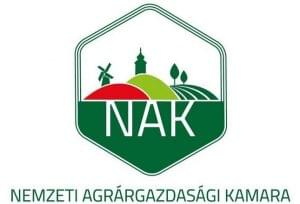NAK provides strong support at hard times too
Balázs Győrffy, president of the Hungarian Chamber of Agriculture (NAK) talked to us about how the chamber can help the agri-food sector at the time of the coronavirus pandemic.

![]() What are the biggest challenges ahead of the agri-food sector today?
What are the biggest challenges ahead of the agri-food sector today?

Balázs Győrffy
president
Hungarian Chamber of
Agriculture
– The current situation has created new challenges for food companies and the problems differ across segments. Some companies are fighting for survival, while in the milling industry and the dairy sector demand for products has soared. It is important that the companies with ongoing development projects should be able to complete these. The pandemic has proved that society needs to pay more attention to the domestic food industry, in order to ensure uninterrupted food supply.
![]() Is the situation of small and large companies different in the current crisis situation?
Is the situation of small and large companies different in the current crisis situation?
– SMEs in the processing industry need to spend more work hours with managing affairs than before, while the level of profitability reduced. They are also likely to have financing problems. As for the large firms, they have their daily struggles too, plus they suffer from the fact that they don’t know what the future will bring. To make things worse, many of these companies use outdated technology and IT background. In the current situation it is of utmost importance to convince retailers and shoppers: they can help Hungarian businesses by buying their products instead of imported groceries.
![]() In the last few years NAK established an operating structure that is based on sectors and the recommendations of those companies that are active there. How does this system work?
In the last few years NAK established an operating structure that is based on sectors and the recommendations of those companies that are active there. How does this system work?
– Thanks to the new system, there is even more focus on the problems of NAK members than before. We have almost 400,000 members and we are representing their interests. It took many years to turn NAK into what it is today: a well-structured and respected organisation.
![]() A year and a half ago NAK established a food industry coordinator network. What are your experiences with this?
A year and a half ago NAK established a food industry coordinator network. What are your experiences with this?
– Our objective is to reach those medium-sized and large member companies too that didn’t really use the chamber’s services before. Regional coordinators met with about 1,200 members in person, and they are in touch with them on a daily basis, to ensure the flow of relevant information.

In the current situation it is utmost important that retailers and consumers prefer the goods provided by Hungarian producers
![]() How big is the financial damage caused by the coronavirus pandemic in agriculture and the food industry? Is the continuous raw material supply of the food industry in danger?
How big is the financial damage caused by the coronavirus pandemic in agriculture and the food industry? Is the continuous raw material supply of the food industry in danger?
– At the moment the size of the financial loss can’t be told. Based on NAK recommendations, the government has already taken several steps to mitigate the damages and assist in the new economic start after the pandemic ends. As for the raw material supply of the food industry, we don’t calculate with serious problems in the long term.
![]() Recently you have launched the NAK Marketplace online platform. How can this help food companies in the current situation?
Recently you have launched the NAK Marketplace online platform. How can this help food companies in the current situation?
– By connecting demand with supply: by launching this Business to Business (B2B) platform, we want to help solve the problem of selling difficulties. We are happy to report that 5 retail chains have already registered on the platform.
![]() How do you manage the problems reported by members in connection with the crisis situation?
How do you manage the problems reported by members in connection with the crisis situation?
– We are in touch with them all the time, and we report the problems that must be solved instantly – for instance, difficulties in delivery – to the Operative Board or the task force responsible for restarting the economy. For problems that require more complex measures we draft recommendations, partnering with the government in realising them. NAK has also started a coronavirus information platform. //
Related news
State compensation for the victims of Bászna Gabona Zrt. has been completed
🎧 Hallgasd a cikket: Lejátszás Szünet Folytatás Leállítás Nyelv: Auto…
Read more >József Viski: Adaptation and competitiveness are key for the horticultural sector
🎧 Hallgasd a cikket: Lejátszás Szünet Folytatás Leállítás Nyelv: Auto…
Read more >Related news
Tuned to efficiency
🎧 Hallgasd a cikket: Lejátszás Szünet Folytatás Leállítás Nyelv: Auto…
Read more >









